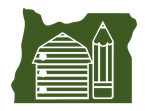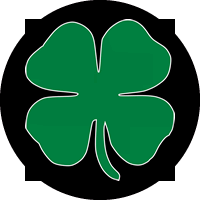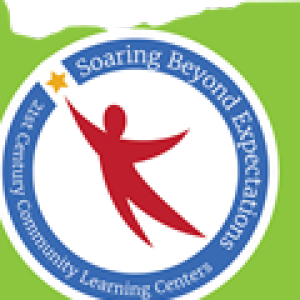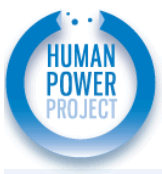Topic Areas > Program Delivery

Program Delivery and 21st Century Community Learning Centers
Scheduling, planning, data collection, professional development, and aligning with the regular school day are all elements of program delivery. There are several resources available to help support each important aspect of delivering quality programming.|
Helping Youth Succeed Through Out-of-School Time Programs
Brand, B., & Pearson, S. (2006). Helping Youth Succeed
Through Out-Of-School-Time Programs| The American
Youth Policy Forum (AYPF), a nonprofit, nonpartisan professional development
organization, provides learning opportunities for policy leaders, practitioners
and researchers working on youth and education issues. |
|
|
Beyond the Bell
Beyond the bell: A
toolkit for creating effective afterschool and expanded learning programs.
All Oregon 21st CCLC programs have received a copy of this resource
and a flashdrive of tools. Topics include: Chapter 1: ManagementChapter 2: Program Design Chapter 3: Partnerships and Collaboration Chapter 4: Program Delivery Chapter 5: Evaluation Chapter 6: Program Improvement |
|
| 21st CCLC Nuts and Bolts Sept. 2016 | |
Start with SMART: Writing Effective Goals for Reports and Plans
 PowerPoint from a webinar held on June 8th which covered
strategies to enhance program goals and strengthen continuous quality
improvement by using the SMART goal process. Download PowerPoint. |
|
Aligning with the School Day resources

Tools and resources to help you to plan, implement, train staff, assess and reflect on your partnership with the school from You for Youth. Resources are arranged into categories including:
|
|
|
A Resource Guide for Planning and Operating Afterschool Programs
A Resource Guide from the Southwest Educational Development Laboratory (SEDL) for Planning and Operating Afterschool Programs provides a description of resources to support 21st Century Community Learning Center afterschool programs. |
|
|
ABC...123 Starting Your Afterschool Program
This toolkit was created by the Utah Department of Workforce Services in collaboration with the Utah State University Extension 4-H. It is a useful resource for afterschool providers who are located in rural areas. |
|
Strengthening Partnerships

Resources and tools to aid in identifying, developing and maintaining partnerships from You for Youth.
|
|
21st CCLC Nuts and Bolts with Pete Ready
 Pete Ready delivered Continuous Quality Improvement Process updates for Oregon 21st CCLC and Nuts & Bolts news directly related to Years 4 and 5 program plans and budgets. View PowerPoint of presentation. |
|
|
21st CCLC Orientation Modules
21st CCLC Orientation Training Checklist Resources for Orientation Modules Module 1: The Basics provides support for new staff and volunteers in 21st CCLC programs. topics include:
Module 2: Staff & Volunteer Guidance This module covers:
Orientation Module SurveyDo you find these modules useful and informative? Would you like to see other topics covered in future modules? Take our 3 minute survey and give us your thoughts. |
|
|
Transition to High School Toolkit
Learn about research-based strategies that help students and parents tackle the transition from middle to high school and the associated social and academic challenges. Includes best practices from Oregon GEAR UP schools. Download the accompanying print-and-use resources: College Admission Requirements; Event Evaluation; Freshman Transition Camp; Summer Bridge Program |
|
|
The Transition to High School Toolkit
Learn about research-based strategies that help students and parents tackle the transition from middle to high school and the associated social and academic challenges. Includes best practices from Oregon GEAR UP schools.
|
Oregon Agriculture in the Classroom Foundation

The Oregon AITC Foundation provides free curriculum, resources and training to K-12 teachers. The program promotes using agriculture to teach science, math, history and nutrition across existing curriculum. |
|
| Program Delivery Outline | |
|
The After-School Program Handbook for School Site Leaders
The handbook identifies specific action steps in creating a robust alignment between students’ in-school and after-school learning. It includes a full range of suggestions for connecting curriculum and instruction, for preparing school site and after-school staff towork together, and for drawing upon after-school learning resources to expand upon and strengthen in-school learning opportunities and to connect with families. |
|
Literacy Tools and Resouces

Tools and resources to help you to plan, implement, train staff, assess and reflect on literacy from You for Youth. Resources are arranged into categories including:
|
|
|
Digital Tools from PBS Learning Media
Short video tutorials will help you learn the basics of using free online tools for teaching and learning. The tools can be incorporated into the classroom to convey information visually, make persuasive arguments and allow for a variety of collaborative opportunities. |
|
|
Beyond School Hours 2018 - Resources
Notes and resources gathered from the keynote presentations and workshops that 21st CCLC staff attended at Beyond School Hours 2018. |
|
Making Out-of-School-Time Matter
|
|
| Embracing the Use of Data for Continuous Program Improvement | |
Looking at the Data: Afterschool Programs Using Data to Better Serve Students
 The Afterschool Alliance, in partnership with MetLife Foundation is
proud to present the last of four issue briefs in our sixth series
examining critical issues facing middle school youth and the vital role
afterschool programs play in addressing these issues. This brief
addresses what afterschool programs gain through data collection and
evaluation, how to evaluate a program effectively and how to use to data
collected for program improvement. |
|
Selecting the Right Evaluator for your 21st CCLC Program
 Evaluation is essential and is a federal requirement for every Title IV-B funded program. This webinar, presented by ODE, will support Oregon Project Directors and Coordinators in identifying, interviewing and selecting the most qualified local level evaluator and provides an outline of action steps for your program evaluation and a newly required four page Program Description Report. Selecting your Evaluator webinar: PowerPointSelecting The Right Evaluator For Your 21st CCLC Program: PDF |
|
Inclusive Child Care Program
The Inclusive Child Care Program is a program of the Oregon Council on Developmental Disabilities that offers consultation and training. Check out the Oregon standardized curricula: Opening Doors to Inclusive After School Programs.
|
|
|
IEP at a Glance
|
|
|
KIT Online Learning Center (OLC)
|
|
Inclusion in 21st CCLC Environments: Putting Laws into Practice
WebinarsWebinar 1: Putting Laws Into Practice Webinar 2: What do Inclusive Programs Look Like? Webinar 3: Strengthening Connections with Families and Communities Webinar 4: Laws as Building Blocks to Inclusion Webinar 5: Developing Collaborative Partnerships with Schools and Districts Webinar 6: Lessons From the Field About Inclusion |
|
|
Lessons from the Field: Serving All Students, Including Students with Disabilities
Resources for 21st CCLC programs to serve
students in inclusive settings from KIT, the Department of
Education and other partners. |
|
|
Making Afterschool Programs Better
Resources from the National Center for Research on Evaluation, Standards, and Student Testing (CRESST.
|
|
|
Inclusion in 21st CCLC
Resources for 21st
CCLC programs to serve students in inclusive settings. Links include resources from
KIT, the Department of Education and other partners. |
|
Trauma Informed Care
Presentation Resources |
|
|
Behind Happy Faces
|
Title IV-B Disclaimer of Endorsement
The presentations and documents funded by Title IV-B 21st Century Community Learning Centers (CCLC) included in Oregon Department of Education (ODE) conferences, and/or posted on ODE web sites may include links to information and resources created by other public and private organizations. These resources, materials and links are provided for the user's convenience and to benefit program quality in Title IV-B. ODE does not control or guarantee the accuracy, relevance, timeliness, or completeness of this non-ODE information. The inclusion of these links is not intended to reflect their importance, nor is it intended to endorse views expressed, or products or services offered, on non-ODE sites.








